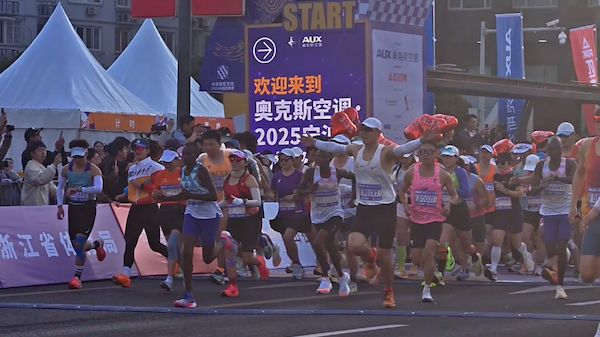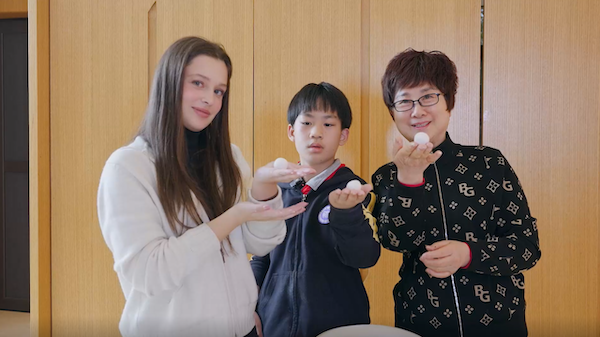China's love affair with luxury goods boosts growth of sector

Attendees take pictures as a model presents a creation during the Louis Vuitton Voyager Show with the upcoming Women's Prefall 2024 collection at the Long Museum West Bund in Shanghai on April 18, 2024. [Photo / AFP]
As China's luxury goods market flourishes, French luxury conglomerate LVMH finds itself at the heart of this growing demand. The Chinese hunger for goods from high-quality, prestigious brands has significantly buoyed LVMH's sales, reflecting broader trends in global luxury consumption, according to industry experts.
Louis Vuitton, one of the oldest fashion houses under LVMH, continues to captivate Chinese consumers with its blend of tradition and modernity. "Chinese consumers value brands with a strong tradition and history, preferring luxury items that are durable and timeless," explained Ashley Dudarenok, founder of China-focused digital marketing agency Alarice.
She said this appreciation has led LV to engage deeply with local culture through striking marketing strategies, which not only drew local attention but also dominated social media discussions.
Similarly, luxury brand Dior connects with the Chinese market through high-profile fashion shows at iconic locations across the country, like the recent major event in Shenzhen that showcased its fall 2023 women's collection.
Dudarenok said these events underline Dior's commitment to the Chinese market, which has become increasingly significant post-pandemic.
Amrita Banta, managing director at luxury goods consultancy Agility Research & Strategy, echoed this view, emphasizing the substantial role of the Chinese consumer in LVMH's success.
She highlighted the strong affinity of Chinese consumers for luxury brands with a distinguished heritage and exceptional craftsmanship, noting that brands like LV and Dior are highly regarded.
"LVMH has invested heavily in the China market and has shown its commitment to the Chinese consumer over time. It has integrated with the local cultural ecosystem and localized," she said.
Wang Qing, a professor and co-founder of the Luxury and Innovation Hub at the University of Warwick in the United Kingdom, said that the rise of luxury consumption in China is a result of the country's stage of economic development and cultural characteristics.
"As China's economy has rapidly grown, a large population of new wealthy individuals who use luxury goods to symbolize status and financial success has emerged," she explained. "Culturally, China is a socially interdependent society where people are susceptible to peer pressure and influences."
According to management consultants Bain & Company's China Luxury Report, last year China's luxury market grew by about 12 percent to more than 400 billion yuan ($55.27 billion). Previously, another consultancy, McKinsey & Company, had projected that by 2025, the combined spending of 7.6 million Chinese households on luxury goods will hit 1 trillion yuan, equivalent to the combined luxury goods spending in France, Italy, Japan, the UK and the United States in 2016.
Jonathan Siboni, CEO of data company Luxurynsight, noted that Chinese consumption has been the main driver of global luxury consumption growth over the past few years, contributing to as much as 90 percent of the market growth in 2019.

 Voices from starting line
Voices from starting line
 China welcomes global travelers with open arms
China welcomes global travelers with open arms
 Kharitonova's running story in Ningbo
Kharitonova's running story in Ningbo



